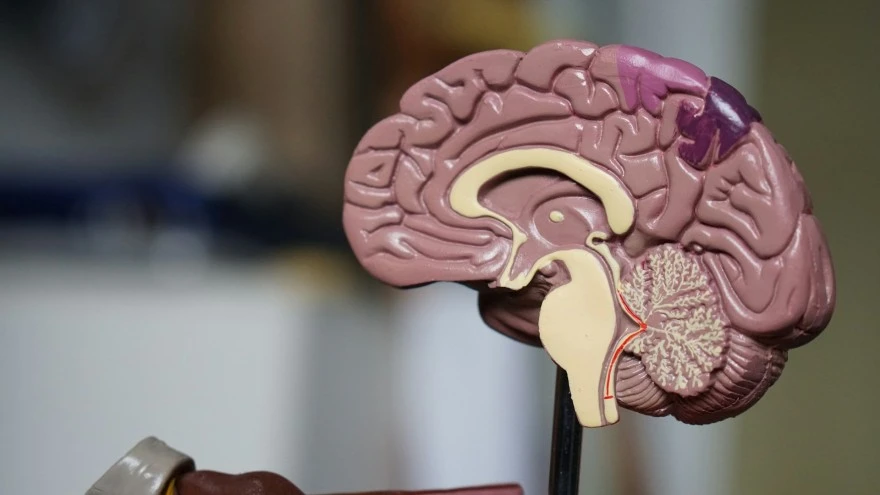Preventive Healthcare
Blood Clot in Brain: Symptoms, Causes, & Treatment

Table of Contents
- Introduction
- What is Blood Clot in the Brain?
- What are the Types of Blood Clots in the Brain?
- What are the Causes of Blood Clots in the Brain?
- What are the Blood Clots in Brain Symptoms?
- How to Diagnose Blood Clots in the Brain?
- What are the Possible Risks & Complications Related to Blood Clots in the Brain?
- What is the Treatment of Blood Clots in the Brain?
- How to Prevent Blood Clot in the Brain?
- Is It Risky to Have Blood Clot in the Brain?
- Are Brain Clots Curable?
- Can One Recover from a Blood Clot in the Brain?
- Can Stress Induce Blood Clot in the Brain?
- When to Seek an Emergency Medical Care?
- Can a Person Die from a Stroke?
- Conclusion
Introduction
A blood clot is a natural process that prevents excessive bleeding when you are injured. However, when they are not dissolved from the blood vessel, they can obstruct the blood flow to vital areas of the brain. A blood clot in the brain can cause stroke or permanent brain damage. So, let’s understand the causes, symptoms, diagnosis, and treatment of the blood clot in the brain to detect and manage this condition early.
What is Blood Clot in the Brain?
A blood clot in the brain is a cluster of cells and proteins in the blood that form inside the blood vessels of the brain. This blood clot can block the blood flow to brain tissue and deprive it of oxygen and essential nutrients, which can cause complications such as stroke or brain damage.
What are the Types of Blood Clots in the Brain?
The types of blood clots in the brain are as follows:
- Ischaemic stroke: This occurs when a blood clot in the brain blocks a blood vessel in your brain, depriving the surrounding tissue of oxygen and nutrients.
- Haemorrhagic stroke: This occurs when the blood vessel ruptures and leaks blood into the surrounding tissue, causing pressure and damage to the brain cells.
What are the Causes of Blood Clots in the Brain?
The following are the causes of blood clots in the brain:
- Atherosclerosis: Over time, fatty deposits called plaque can build up in your arteries, narrowing them and making it easier for blood clots to form in your brain.
- Hypertension: High blood pressure can exert pressure on the walls of blood vessels, causing them to weaken and become more susceptible to blood clot in brain formation.
- Diabetes: High blood sugar levels can damage the lining of your blood vessels, making them more prone to form blood clots in the brain.
- Smoking: Tobacco smoke contains chemicals that damage the walls of your blood vessels, making them rough and sticky, which can lead to the formation of blood clots in the brain.
- Obesity: Carrying excess weight can increase your risk of conditions like high blood pressure and diabetes, both of which can cause blood clots in the brain.
- Sedentary lifestyle: Lack of physical activity can lead to obesity and poor blood circulation, increasing the likelihood of the formation of blood clots in the brain.
- Age: Above 55 years of age, the risk of suffering from diabetes and hypertension followed by brain stroke may increase due to the formation of blood clots in the brain.
- Family history: One is likely to suffer a brain stroke if parents, grandparents, or any sibling has a history of high blood pressure, diabetes, or history of stroke, as these conditions can lead to blood clots in the brain.
What are the Blood Clots in Brain Symptoms?
Here are a few blood clot in brain symptoms:
- Sudden severe headache
- Weakness or paralysis on one side of your body
- Numbness or tingling sensation
- Difficulty speaking or understanding speech
- Vision changes
- Dizziness or loss of balance
- Confusion or difficulty understanding surroundings
- Seizures
- Loss of consciousness
How to Diagnose Blood Clots in the Brain?
The blood clot in brain diagnosis typically involves a combination of your medical history review, physical examination, and imaging tests such as:
- CT (Computed Tomography) Scan to diagnose blood clots in the brain.
- MRI (Magnetic Resonance Imaging) to diagnose blood clots in the brain.
- Cerebral Angiography to diagnose blood clots in the brain.
- Doppler Ultrasound to diagnose blood clots in the brain.
What are the Possible Risks & Complications Related to Blood Clots in the Brain?
Blood clots in the brain can lead to severe complications such as:
- Stroke
- Permanent brain damage
- Cognitive impairment
- Paralysis
- Speech difficulties
- Death
What is the Treatment of Blood Clots in the Brain?
Blood clot in brain treatment depends on its type, location and severity of the condition. Some of the blood clots in brain treatment options include:
- Medications to dissolve the blood clot in the brain (thrombolytics)
- Blood thinners to treat blood clots in the brain (anticoagulants)
- Surgery to remove the blood clot in the brain (thrombectomy)
- Medications to prevent further blood clots in brain formation
- Rehabilitation therapy to regain lost function after a blood clot in brain treatment.
How to Prevent Blood Clot in the Brain?
At present, there are no reliable ways to prevent blood clots in the brain. However, taking preventive measures such as adopting a healthy lifestyle can help decrease the chances of developing blood clots in the brain. Here are some ways to embrace a healthy lifestyle:
- Regular exercise
- A healthy diet low in saturated fats and cholesterol
- Maintaining a healthy weight
- Quitting smoking
- Controlling high blood pressure and diabetes
- Taking prescribed medications as directed
Is It Risky to Have Blood Clot in the Brain?
Yes, having a blood clot in the brain is indeed risky. Blood clots in the brain can lead to slurred speech, difficulty in understanding, heart attack, paralysis, permanent brain damage, and even death. Therefore, you should consult your doctor immediately for early diagnosis and treatment, as most people with early blood clots in brain treatment recover fully.
Are Brain Clots Curable?
Yes, blood clots in the brain are curable, but this may vary from person to person based on the blood clots in the brain causes, the type, size, and location of the clot. Also, it depends on your overall health and how quickly the blood clot in brain treatment is initiated.
While some blood clots in the brain can be effectively treated with medications or procedures to dissolve or remove them, others may require long-term management to prevent recurrence and manage associated risk factors.
Can One Recover from a Blood Clot in the Brain?
Yes, one can recover from a blood clot in the brain by early detection of signs of a blood clot in the brain and a timely blood clot brain treatment. Your doctor may put you under rehabilitation therapy, including physical therapy, occupational therapy, and speech therapy, which may be necessary to help you regain lost function and improve the quality of your life.
Can Stress Induce Blood Clot in the Brain?
Yes, stress, especially severe or chronic stress, can be one of the indirect causes of blood clots in the brain. Chronic stress can lead to unhealthy lifestyle habits such as smoking, poor diet, lack of exercise, and inadequate sleep, which are known risk factors for conditions such as high blood pressure, obesity, and diabetes. These conditions, in turn, can increase the risk of developing blood clots in the brain and other parts of the body.
When to Seek an Emergency Medical Care?
Seek immediate medical care if you experience any of these blood clots in brain symptoms:
- Sudden severe headache
- Weakness/paralysis on one side
- Difficulty speaking
- Loss of balance
- Vision problems
- Numbness/tingling or confusion.
These blood clot in brain symptoms may indicate signs of a blood clot in the brain, where prompt medical attention significantly improves outcomes.
Can a Person Die from a Stroke?
Yes, a stroke is a serious medical emergency in which the blood supply to your brain is interrupted due to blood clots in the brain. When this happens, the brain cells can die, which can lead to permanent brain damage, coma, or even death. Therefore, it is crucial to recognise the signs of blood clots in the brain and seek emergency medical care immediately to minimise the risk of complications and improve outcomes.
Conclusion
Recognising the symptoms of blood clots in the brain, being aware of the causes of blood clots in the brain, and timely treating such blood clots in the brain can be crucial for better outcomes. Regular health check-ups, including services offered by Metropolis Healthcare, help detect risk factors early. With a wide range of diagnostic services, Metropolis supports proactive health management.


































